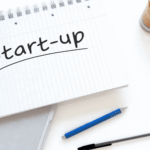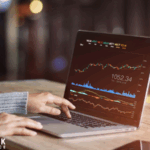The surge in artificial intelligence activities is playing a pivotal role in enhancing global dealmaking, reaching a noteworthy total of $2.6 trillion in 2025. Despite the fluctuating economic landscape, companies continue to pursue AI-driven prospects, balancing uncertainties while striving for strategic growth. Investment in AI and related technologies has not only addressed existing challenges but also ignited a renewed zeal among businesses aiming to secure an edge in an ever-evolving market.
There was a time when global dealmaking had seen peaks, such as in 2021, amid pandemic-fueled trends, which sparked an unprecedented wave of activities. The strategies adopted during such times have paved the way for today’s nuanced decisions. The evaluation of AI as a core component now acts as a countermeasure to previous tariff-induced hesitations and geopolitical uncertainties. The shift from a more conservative approach towards embracing transformative technologies illustrates the evolution from historical patterns.
What Fuels the Surge in Dealmaking?
The current upswing in deals has been largely fueled by a focus on corporate expansion and technological advancements. Strategic acquisition moves, such as Union Pacific’s proposed $85 billion acquisition of Norfolk Southern and OpenAI’s ambitious $40 billion funding round, reflect this drive. These deals signify how corporations are pushing towards tapping into the potential of AI and restructuring their strategies around it. “What you’re seeing in terms of deal rationale for transactions right now is that it’s heavily growth-motivated, and it’s increasing,” said Andre Veissid of EY Global Financial Services.
Can Dealmakers Sustain the Momentum?
The quest for sustaining this momentum remains a subject of interest for market watchers. With deal numbers significantly reduced compared to 2024, the focus shifts to the valuation aspect and growth-driven initiatives derived from AI technology. AI’s role in shaping these dynamics indicates a future trajectory that is less dependent on sheer volume and more inclined toward impactful, value-driven transactions. “Whether it’s artificial intelligence, the change in the regulatory environment, we see our clients not wanting to be left behind in that race and that’s driving activity,” Veissid further observed.
The current economic climate, charged with unpredictability, forces companies to identify adaptive strategies. The research highlights an intriguing aspect: companies are getting accustomed to navigating these “spinach-like” environments, as characterized by industry analysts. Embracing necessary yet challenging scenarios, businesses have equipped themselves with mechanisms to manage potential risks effectively.
Recent insights revealed that a significant proportion of firms are adapting to the constraints imposed by their external circumstances. Over half of the product leaders have recalibrated product lines due to tariffs, while a parallel shift towards domestic resources is evident across several industries. This pragmatic transition underscores a broader strategy where AI integration acts as a critical mitigation tool against unpredictability.
As 2025 unfolds, the intertwining of AI with corporate strategies continues to shape the landscape of global dealmaking. The corporate embrace of AI-driven solutions paves the way for innovative measures that align closely with operational agility and strategic pivots. This holistic adoption showcases an inclination towards methodologies aimed at balancing risk while fostering growth.










